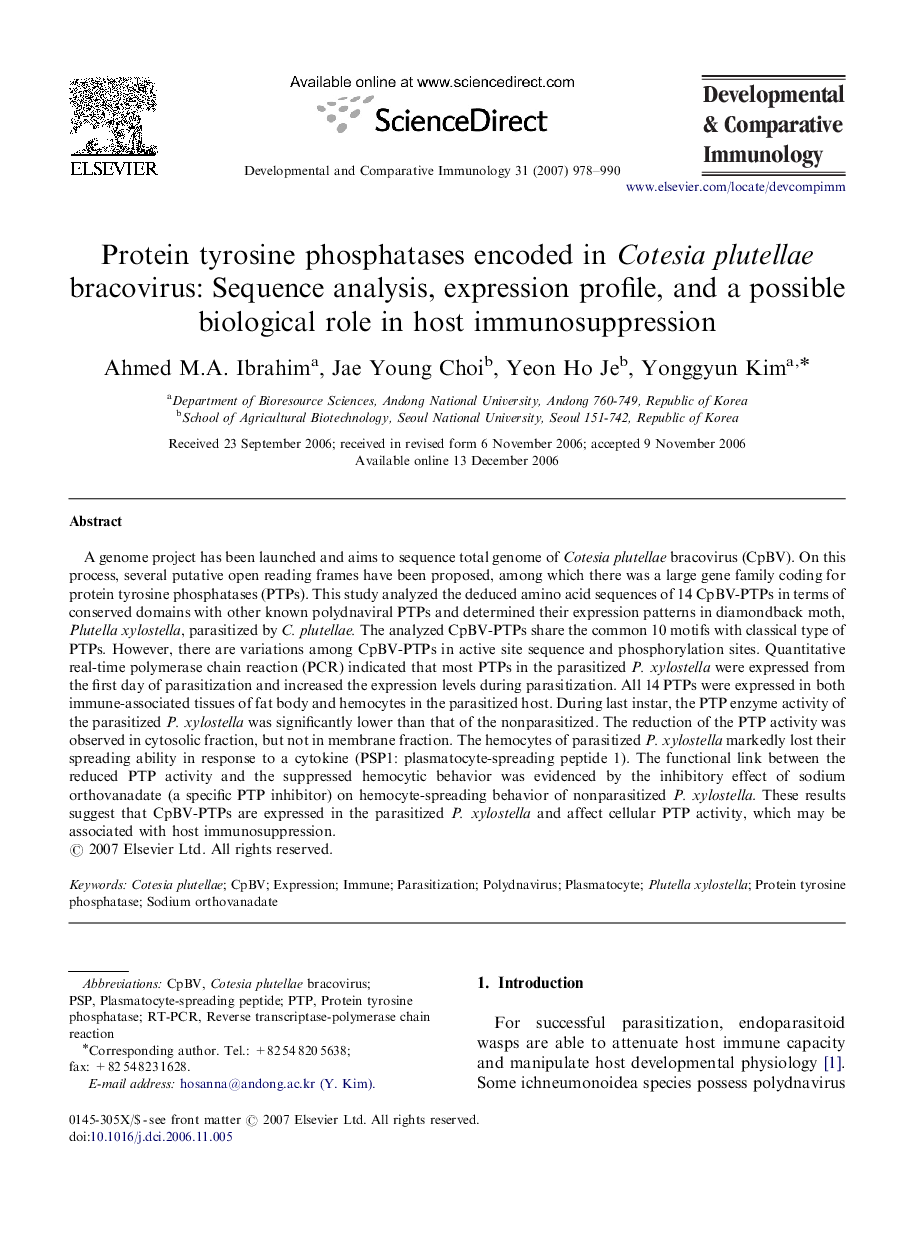| Article ID | Journal | Published Year | Pages | File Type |
|---|---|---|---|---|
| 2429959 | Developmental & Comparative Immunology | 2007 | 13 Pages |
A genome project has been launched and aims to sequence total genome of Cotesia plutellae bracovirus (CpBV). On this process, several putative open reading frames have been proposed, among which there was a large gene family coding for protein tyrosine phosphatases (PTPs). This study analyzed the deduced amino acid sequences of 14 CpBV-PTPs in terms of conserved domains with other known polydnaviral PTPs and determined their expression patterns in diamondback moth, Plutella xylostella, parasitized by C. plutellae. The analyzed CpBV-PTPs share the common 10 motifs with classical type of PTPs. However, there are variations among CpBV-PTPs in active site sequence and phosphorylation sites. Quantitative real-time polymerase chain reaction (PCR) indicated that most PTPs in the parasitized P. xylostella were expressed from the first day of parasitization and increased the expression levels during parasitization. All 14 PTPs were expressed in both immune-associated tissues of fat body and hemocytes in the parasitized host. During last instar, the PTP enzyme activity of the parasitized P. xylostella was significantly lower than that of the nonparasitized. The reduction of the PTP activity was observed in cytosolic fraction, but not in membrane fraction. The hemocytes of parasitized P. xylostella markedly lost their spreading ability in response to a cytokine (PSP1: plasmatocyte-spreading peptide 1). The functional link between the reduced PTP activity and the suppressed hemocytic behavior was evidenced by the inhibitory effect of sodium orthovanadate (a specific PTP inhibitor) on hemocyte-spreading behavior of nonparasitized P. xylostella. These results suggest that CpBV-PTPs are expressed in the parasitized P. xylostella and affect cellular PTP activity, which may be associated with host immunosuppression.
